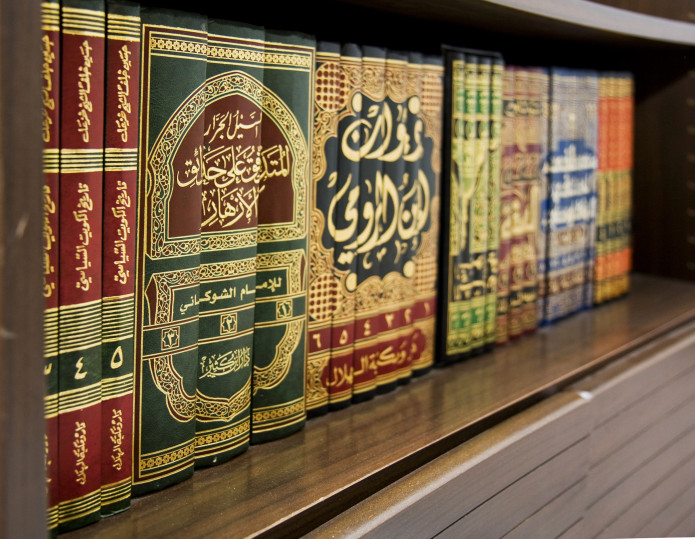Question:
Can one blame the Shia’s for killing Imam Husain (as)? Who is responsible for this tragedy of killing the grandson of the Prophet (P)?
Answer:
Please consider the following facts:
1. This claim is self-contradictory! Shi’ah means ‘follower’. How could one follow a leader but fight against him? A follower fights for his Imam, not against him. A Shi’ah is the one who believes in the inerrancy (‘Esma) of the 12 Imams of Ahlul-Bayt (a.s) as the only successors of the Holy Prophet (P), takes his religion from them, and obeys them in all circumstances. He is at peace with those who are at peace with the Imams (a.s) and is at war against those who fight against them. He loves the Imams (a.s) and repudiates their enemy.
2. According to al-Tabari (vol. 5, p. 417) during the battle of Karbala, the criterion for being Shi’ah of Ahlul-Bayt (a.s) was whether they fought for or against Imam Husain (a.s).
3. Those who fought Imam Husain (a.s) in Karbala came from Kufa. However, it is not true that most Kufans were Shi’ah. The Kufan people of that time consisted of the following groups:
a) Sincere Shi’ah who believed in the inerrancy (‘Esma) of the Imams, such as Hāni bin Urwa, Mukhtār, Habib bin Modhāher, Muslim bin Awsaja, etc. These people were either killed prior to Ashura or imprisoned or with great difficulty reached Karbala and supported Imam Husain (a.s) until death.
b) Lovers of Ahlul-Bayt (a.s) who did not believe in the inerrancy (‘Esma) of the Imams, such as Sulaymān bin Sorad, Musayyab bin Najabah, etc. These people preferred the Ahlul-Bayt (a.s) over the Umayyad Caliphs and hence wrote invitation letters to Imam Husain (a.s). However, when Hani and Muslim were brutally killed, they were intimidated and abandoned the Imam, though they never fought against the Imam either. Furthermore, they regretted it later on and waged the Penitents Uprising (Thawrah al-Tawwābin). They were the same people who would choose to join the army of Imam Ali (a.s) and Imam Hasan (a.s) only if they agreed with their decision. Thus, Sulaymān bn Sorad abandoned Imam Ali (a.s) during the battle of Camel and opposed Imam Hasan (a.s) when the Imam signed a peace treaty with Mu’awiyah!
c) Omawis: The followers of the Umayyads, such as ‘Amr bin Hajjaj, ‘Amr bin Huraith, Umar bin Sa’d, etc. They along with their soldiers were among the main perpetrators of Karbala. It is interesting to note that they too, in an act of hypocrisy, signed invitation letters to Imam Husain (a.s)!
d) Khawarij; such as Shabath bin Reb’ee, Hajjar bin Abjar, etc. They too were among the perpetrators of the tragedy of Karbala.
e) laymen who just jumped on the bandwagon. They were people of Dunya whose motivation was their personal gain. They signed the invitation letters when things were promising for Imam Husain (a.s), but when faced with Ibn Ziad’s threats and bribery, they turned on their heels.
f) A religious minority of Christians, Jewish and Zoroastrians. I have not seen any historical evidence of their involvement.
5. Almost all historians have reported that when Imam Husain (a.s) left Makkah to Kufa, Yazid wrote a letter to the governor of Kufa, Ibn Ziad, ordering him to ‘either behead (Imam) Husain or take him as a slave!” and Ibn Ziad killed the Imam and sent his head to Yazid. (al-Zahabi, vol 3. P.305). Therefore, Yazid is the main perpetrator of the tragedy of Karbala.
6. Here are the names of the most famous murderers of Karbala: Umar ibn Sa’d, Shimr ibn Ziljoshan, Shabath ibn Reb’ee, Hajjar ibn Abjar, Amr ibn Hajjaj, Harmala ibn Kāhel. These are among the people who, when Imam Ali (a.s) declared that Salat al-Tarawih should not be held in a congregation, they opposed the Imam and cried: “The tradition of Umar (is being ignored!), the tradition of Umar (is being ignored)!” (Ibn Abil-Hadid, vol. 12 p.283). Would you call such people Shi’ah?!
7. I think the best person to answer that question is Imam Husain (a.s). He never referred to the criminals of Karbala as his followers or ex-followers! Rather, he called them the shi’ah (followers) of the children of Abu-Sufyan:
On the Day of Ashura when the holy Imam saw that they are intending to raid his tents, he shouted at them: “Woe to you O’ shi’ah (followers) of the children of Abi-Sufyan! If you do not adhere to any religion nor fear Resurrection Day, then (at least) act manly in your worldly affairs.” (al-Khārazmi, vol.2 p.38).
8. The murderers of Karbala also never introduced themselves as the lovers of Husain (a.s). They rather said: “Surely, we fight you for our hatred towards your father”! (al-Qondoozi, p.346). They also called Imam Husain (a.s) a liar! According to al-Tabari one of the soldiers of Umar bin Sa’d shouted at Imam Husain: “O Husain, O liar son of a liar!” (al-Tabari, vol.5 p.434).
9. Even the main perpetrators of the tragedy of Karbala never claimed that Imam Husain (a.s) was killed by his Shi’ah. Rather, they took pride in killing Imam Husain (a.s) and his Shi’ah.
After the tragedy of Karbala, Ibn Ziad ascended the Minbar in the Masjid of Kufa and said: “All praise belongs to Allah who revealed the truth… and killed the liar Husain son of the liar and his Shi’ah (followers)!” (Al-Mufid, al-Ershad, p.244)
10. Which lover, let alone a follower, would slay the infant of his beloved Imam?! Which lover, let alone a follower, would ride his horse on the chest of his beloved Imam and would proudly cry: “We levelled the chest and the back”?!! (Ibn Atheer, vol.4 p.80).
Answered by: Sheikh Mansour Leghaei







